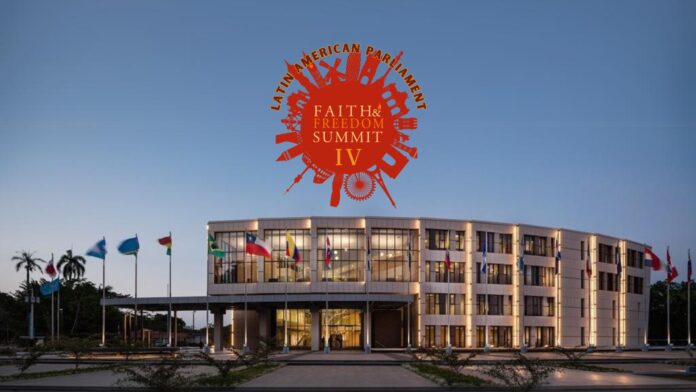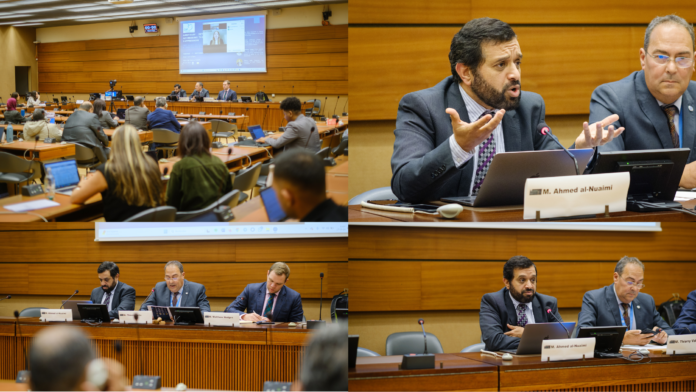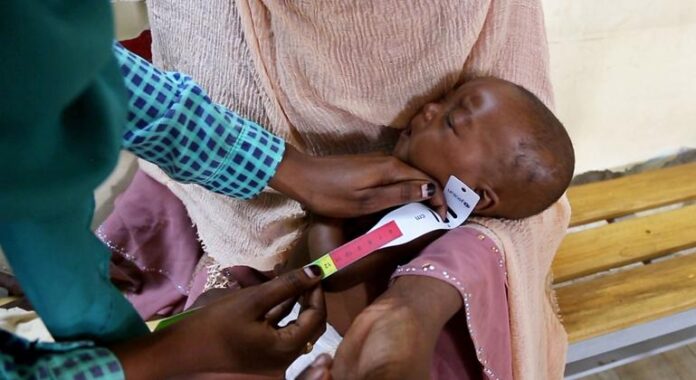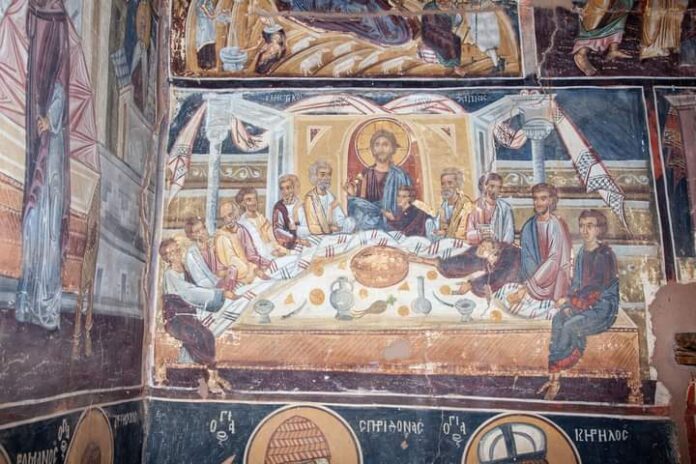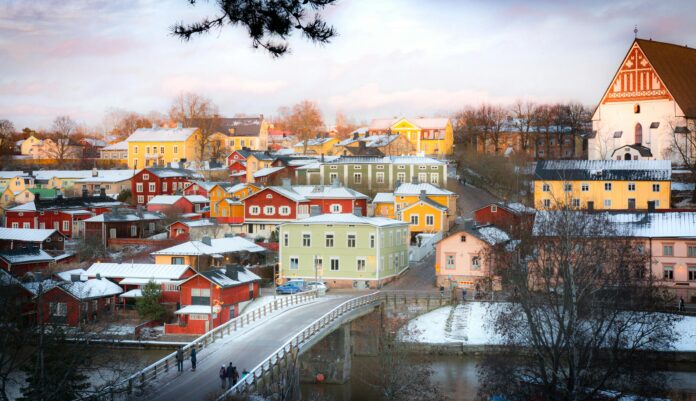As published by the well-known digital newspaper ‘Panoráma Económico Panama’, the most read digital news of Panama, the Parlatino will host this week the 4th edition of the prestigious ‘Faith and Freedom Summit’ (see web). After noting the increasing violations of freedom of belief in many parts of the world, more than 40 speakers from Panama, Germany, Argentina, Belgium, Colombia, Costa Rica, Chile, Spain, United States, France, Holland, Mexico, United Kingdom and others will address during 2 intense days the problems and good practices in the protection of the right to freedom of belief in the world.
Panama City, 22 September – The Latin American and Caribbean Parliament (Parlatino) in Panama City has been chosen as the venue for the International Summit ‘Faith and Freedom’ on 24-25 September 2024. This event, under the appropriate slogan ‘Practising what we preach’, will bring together over two days more than 40 leading academics, human rights defenders, religious leaders and politicians from various regions of the world.
The event will address the promotion and defence of freedom of conscience. Ambassadors from various countries around the world have confirmed their participation, as well as the Nunciature and public and legislative officials.
The strategic partners supporting Faith and Freedom Summit IV have been the Parlatino, the National Bar Association of Panama, the European Religions Initiative, the Catholic University Santa María La Antigua(USMA), the International Center for Law and Religion Studiesand the international campaign ‘What is Freedom of Religion?’.
The summit has broad global support from international organisations, academia, civil society and religious bodies, and will feature a special message from Dr. Nazila Ghanea, the current UN Special Rapporteur on Freedom of Religion and Belief, who will emphasise the global importance of protecting this fundamental human right.
The opening ceremony will be addressed by Elías Castillo, Executive Secretary of Parlatino; His Excellency Juan Francisco Borrell Cal, Vice Minister of Government of the Republic of Panama; H.E. Mr. Rubén Farje, Representative in Panama of the Organization of American States; Ms. Maricarmen Plata Secretary of Access to Rights and Equity Organization of American States; as well as Mr. Ivan Arjona, a founding member of the NGO Coalition Faith and Freedom Summit; and will have as Master of Ceremonies Ms. Giselle Lima, Coordinator of the International Religious Freedom Roundtable in Panama.
Initiated as a European campaign by a coalition of secular and faith-based non-governmental organisations from the European Union, the Faith and Freedom Summit has gained international momentum with organisations from all corners of the world. Since its inception in 2018, it has succeeded in bringing together stakeholders from various parts of the world with a common goal: to join forces and resources to end discrimination and defend freedom of religion and belief, so that everyone can believe, disbelieve or change their beliefs everywhere in the world and at all times.
Throughout its three previous editions, held at the European Parliament, the summit has served as a platform to foster dialogue between politicians, academics, religious and civil society, to promote non-discrimination policies and to strengthen legislative mechanisms for the protection of human rights at regional and international level.
The event’s programme includes panel discussions focusing on:
– Mechanisms to promote and protect freedom of belief within nations and regions.
– The role of academia in the defence of religious freedom.
– Religions and interfaith work to protect the freedom of others.
– The importance of civil society participation in promoting freedom of belief.
– Responsibility of the media in promoting and respecting freedom of belief.
– Achieving freedom of belief for all through diplomacy.
An International Call to Action
The summit invites political leaders, civil society organisations and citizens around the world to unite in defence of freedom of conscience and religion. They are urged to sign a pledge rejecting intolerance, discrimination, harassment and violence, in order to build a more equitable society that respects diversity of belief.



